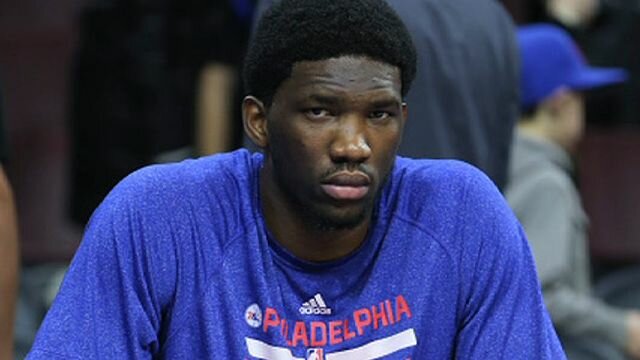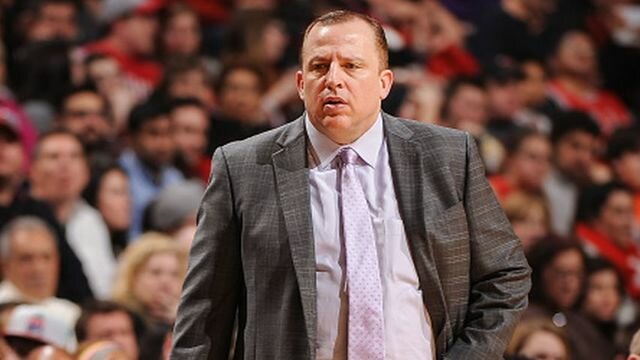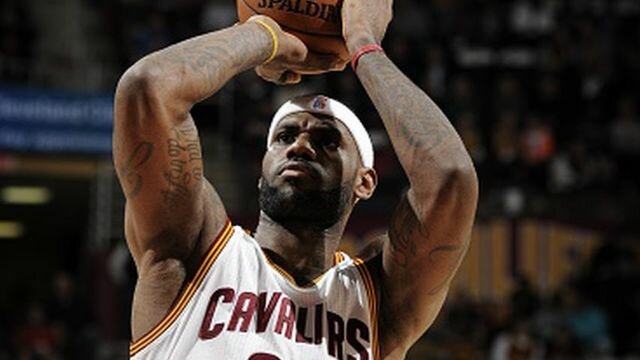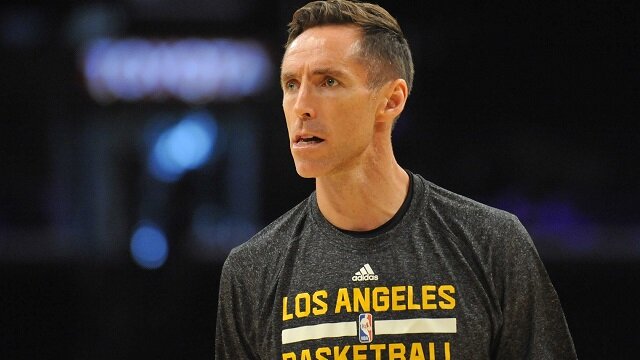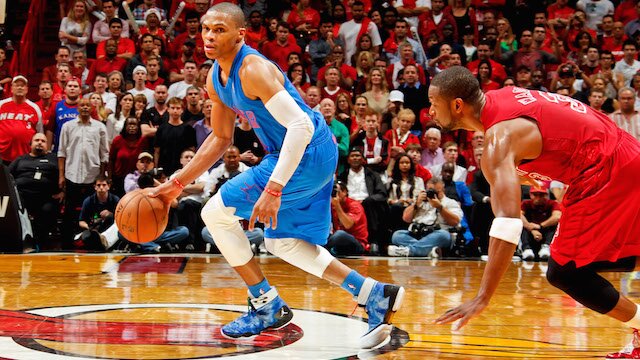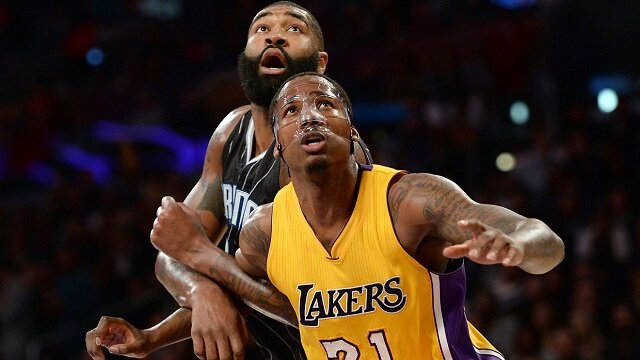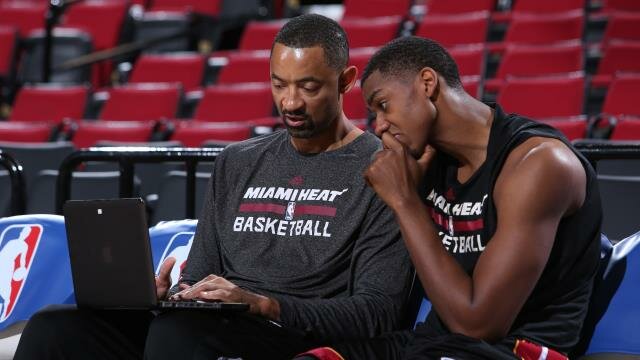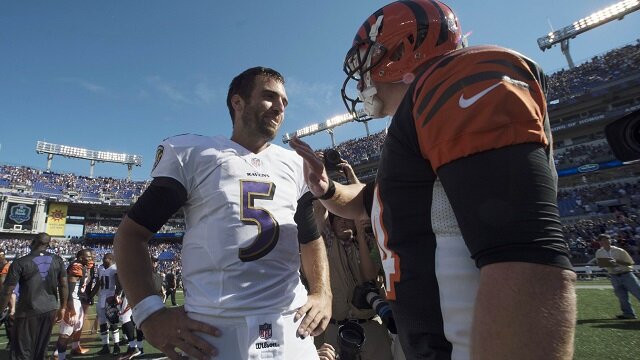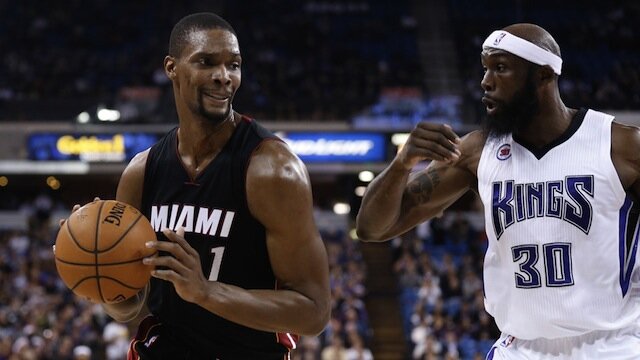Stephon Marbury’s Greatest Ever Highlight-Reel Move Is Coming Clean About Mental Health Issues
It is not only refreshing but rare to see a high-profile professional athlete open up about serious personal problems, and former two-time NBA All-Star Stephon Marbury will do just that in an upcoming nationally televised documentary.
First off, Marbury needs to be congratulated and embraced for his courage to open up and talk about private demons which most professional athletes would never dare discuss in public. Marbury, known for his blinding crossover move and skills, recounts his struggles with depression, mental health and suicidal thoughts in the latest episode of ‘Real Sports with Bryant Gumbel’ which airs Tuesday on HBO.
The talented point guard sheds some light on his final turbulent final days with the New York Knicks and well-publicized feud with former president Isiah Thomas, the death of his father Don Marbury, Sr., the decline and eventual end of his NBA career and the financial flop of his basketball sneaker line ‘Starbury’.
“I was trapped in my thoughts, I was trapped in how I felt about how I felt I was treated,” Marbury tells Gumbel. “I was definitely depressed, I wanted to die, I wanted to kill myself some days.”
The documentary also recounts a bizarre and troubling video posted on the internet by Marbury during his dark days in New York which highlights his mental health problems.
Thankfully Marbury eventually overcame things, changed his outlook and avoided another horrific sports tragedy when he agreed to revive his professional basketball career with the Chinese Basketball Association in January 2010. He has since gained celebrity status in China and currently plays for the defending champion Beijing Ducks.
Often swept under the rug and out of the public eye, mental health issues are a serious and ongoing crisis for professional sports leagues around the world. Whether brought about by personal crisis, stress or exacerbated by concussions and brain injuries, these are life-threatening problems which today’s elite athletes need to come clean on. When our sports heroes bottle these feelings up, the concealment can have tragic consequences.
In 2010, former Cleveland Cavaliers center Melvin Turpin was found dead in his Lexington, Ky. home, the victim of a self-inflicted gunshot wound. Former Sacramento Kings small forward Ricky Berry shot himself after an argument with his wife in 1989 and former Boston Celtics forward Phil Hankinson met the same fate in 1996 after, according to his father, not being able to come to terms with a carer-ending knee injury that occurred back in the mid 1970s.
There are also more numerous examples outside of basketball. In January 2012, NFL fans were left in a state of shock after Kansas City Chiefs linebacker Jovan Belcher shot and killed his girlfriend and then drove to Arrowhead stadium and committed suicide in front of his coach and general manager. Four months later, San Diego Chargers’ 12-time Pro Bowl linebacker Junior Seau was found dead in his home with a self-inflicted gunshot wound. Both players had suffered repeated brain injuries during their careers.
In MLB, former Cincinnati Reds infielder Ryan Freel also suffered multiple concussions during his career and died from a self-inflicted gunshot wound. In May 2011 we learned about the suicide death of former Nigerian World Cup soccer star and Kansas City Wizards defender Uche Okafor who hanged himself in his home.
In hockey, former NHL star Theoren Fleury discussed the moment he had put a loaded gun to his head in the book ‘Playing With Fire’. Fleury didn’t take his own life back in 2004 but had the courage to speak out about years of drug and alcohol abuse which stemmed from the sexual abuse he suffered at the hands of former minor league hockey coach Graham James. Olympic speed skater and cyclist Clara Hughes is also another high-profile athlete whom has gone public with her struggles with depression and is currently a spokesperson for Canada’s ‘Lets Talk About Mental Health Issues’ campaign.
Marbury, Fleury and Hughes are rare examples of athletes who have decided to take their personal problems head-on and out in the public realm, with hopes that others can learn from their stories and seek treatment if needed. Marbury needs to be celebrated, congratulated and warmly embraced, because his bravery and honesty will not only avoid future tragedies but it also gets issues of mental health on the front burner where it belongs.
Peter Mallett is a blogger for www.RantSports.com. Follow him on Twitter @RedCardTheRef1 like him on Facebook or add him to your network on Google.
Lakers Could Use Steve Nash As A Mentor
Find out how the Los Angeles Lakers could use Steve Nash as a mentor both on and off the court. Read More
Oklahoma City Thunder Appears Sluggish
The Oklahoma City Thunder must make a trade or risk serious consequences down the line with Kevin Durant's looming free agency. Read More
Ed Davis A Good Signing For Lakers In Offseason
Find out why the Los Angeles Lakers were smart to sign Ed Davis to a minimum deal during the offseason. Read More
Hassan Whiteside Injury Allows Thunder To Prevail
Finally, the Miami Heat have found some front court strength in 7-footer Hassan Whiteside, but a sprained ankle opened the door for the Oklahoma City Thunder. Read More
76ers Wise To Invest Long-Term In Robert Covington
Heading into the year, many had never even heard of Robert Covington. But just a few months into his time with the franchise, Covington appears to be becoming a long-term member of the 76ers. Read More
Metta World Peace on Pro Bowl Invitations
In his official blog, Metta World Peace breaks down what a Pro Bowl invite would mean to him. Read More
The 5 Worst Celebrity Fans in the NBA
These five famous NBA celebrity fans do their favorite teams no favors. Read More
Jeremy Lin's Trade Value Difficult To Gauge
Jeremy Lin came to the Los Angeles Lakers looking for a fresh start. Now that he’s not even starting, what, if anything, might he be worth on the trade market? Read More
Not Drafting Westbrook Didn’t Hurt the Heat
In hindsight, did the Miami Heat truly miss out on Russell Westbrook? Read More
Bosh Needs To Dictate Offense Again For Heat
When Chris Bosh scores 30 or more points, the Miami Heat are 17-0. He needs to be more of a focal point on offense. Read More
76ers' Mid-Season Report Card
Halfway through the 2014-15 season, the Philadelphia 76ers stand at 8-33. Some things have gone well for them, while others not so much. Read More
Warriors Could Make History This Season
The Golden State Warriors are beating teams left and right. They could accumulate enough wins to get into the history books. Read More
